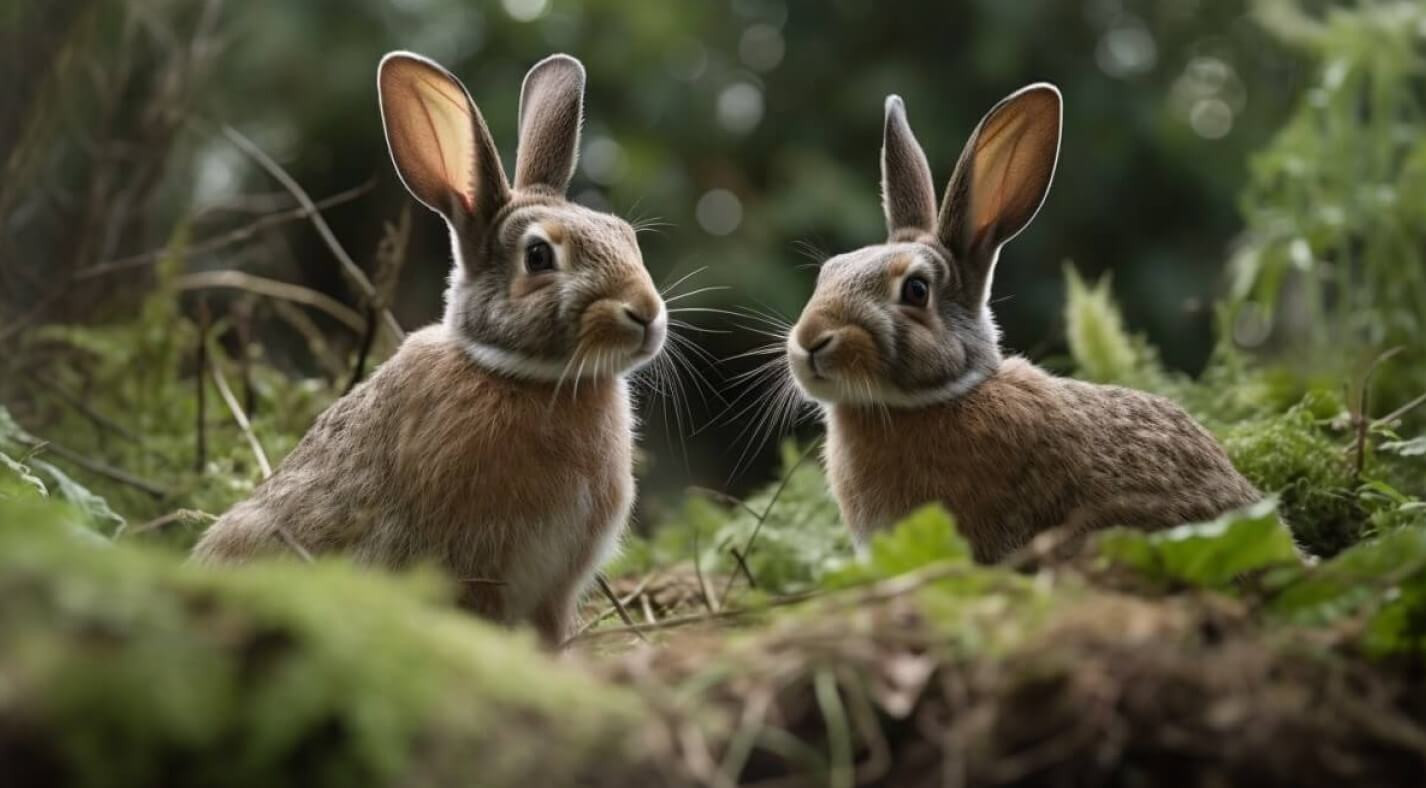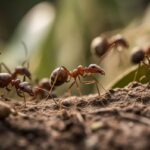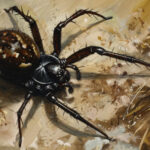Would you prefer to listen to a short podcast discussion about this article? Click on the audio below.
The rapid decline of British wildlife is a growing concern for conservationists and wildlife enthusiasts alike. The British Isles, once teeming with diverse species of animals and birds, are now seeing a significant reduction in their population due to various human activities. Habitat loss, climate change, hunting, and poaching are some of the primary reasons for the decline in British wildlife.
The impact of agriculture, urbanization, and illegal trade in wildlife has further added to the problem. This article will explore the causes of vanishing wildlife in Britain, its consequences, and possible remedies to help conserve these magnificent creatures.
Table of Contents
Introduction to Our Vanishing Wildlife and the Importance of Conservation Efforts
The decline in British wildlife populations is a growing concern. Many species that were once abundant are now struggling to survive due to various factors, including habitat loss, climate change, hunting, poaching, and agriculture. The loss of wildlife not only affects the balance of ecosystems but also significantly impacts our natural heritage and cultural identity. It is vital to take conservation efforts seriously to prevent further loss of wildlife and preserve biodiversity in Britain.
Why is The Wildlife Disappearing?
Wildlife is disappearing due to multiple factors, including habitat loss, climate change, and illegal activity such as hunting and poaching. The human population in Britain has increased significantly over the years, leading to the destruction of natural habitats for agricultural and urban development purposes. Climate change has also posed a significant threat to wildlife in Britain, as it affects the availability of food and shelter. Additionally, illegal hunting and poaching have led to the depletion of many species, especially those that are already vulnerable or endangered.
The Importance of Conserving Wildlife in Britain
Wildlife conservation is crucial because it helps in maintaining ecological balance and natural biodiversity. Wildlife plays a vital role in pollination, seed dispersal, and regulating the population sizes of other species. Conserving wildlife in its natural habitats also helps in the preservation of cultural heritage and provides ecological services such as clean air and water. Moreover, many species of wildlife are integral to the tourism industry in Britain, and their presence is essential to support the local economy.
Causes of Decline in British Wildlife Population: Habitat Loss and Climate Change
Habitat Loss: The Main Reason for Vanishing Wildlife in Britain
Habitat loss is the primary reason for the decline in British wildlife populations. Deforestation, urbanization, and intensive farming practices have destroyed natural habitats, leaving many species vulnerable and threatened. In addition, the fragmentation of habitats due to the construction of roads, buildings, and other infrastructure has led to the isolation of species, making it difficult for them to breed or migrate.
Climate Change and its Effects on British Wildlife
Climate change is another significant threat to wildlife in Britain, affecting biodiversity and ecosystems. Changes in temperature, precipitation, and weather patterns have disrupted breeding cycles, migration patterns, and food availability for many species. Rising sea levels have also led to the loss of coastal habitats, affecting the breeding grounds of marine species. The effects of climate change on wildlife are complex and interconnected, making it difficult to predict the long-term effects.
Hunting and Poaching: Illegal Activities that Affect British Wildlife
How Hunting and Poaching Disrupt the Ecosystem
Hunting and poaching are illegal activities that have significant impacts on wildlife in Britain. The killing of wildlife disrupts the natural balance of ecosystems, leading to the overpopulation of some species and the decline of others. Hunting and poaching also remove key species from the food chain, which can have a ripple effect on the entire ecosystem. Moreover, the use of traps and snares can cause injuries and suffering to animals.

Illegal Trade in Wildlife and its Impact on British Wildlife
The illegal trade in wildlife is a significant threat to many species in Britain. The demand for wildlife products such as ivory, rhino horn, and exotic pets has fueled the illegal trade, leading to the poaching and trafficking of many species. The illegal trade affects the targeted species and threatens the survival of other species in the ecosystem. Furthermore, the illegal trade significantly impacts local communities and economies, as it often involves organized crime syndicates.
The Impact of Agriculture and Urbanization on Wildlife in Britain
Agriculture and Wildlife: A Complex Relationship
Agriculture has a complex relationship with wildlife in Britain. While agriculture has led to habitat loss and the destruction of ecosystems, it has also provided new habitats for some species. For example, hedgerows and field margins can provide valuable birds, insects, and small mammals habitats. However, intensive farming practices can lead to the use of pesticides and fertilizers, which can have adverse effects on wildlife and ecosystems.
Urbanization: The Threat to Wildlife Habitats in Britain
Urbanization is a significant threat to wildlife habitats in Britain. As the population grows, more land is needed for housing and infrastructure, destroying natural habitats. Urban development also leads to the fragmentation of habitats, making it difficult for species to move between habitats. Furthermore, urbanization can lead to pollution, noise, and disturbance, which can adversely affect wildlife and their habitats.
The Role of Conservation Organizations in Protecting British Wildlife
Conservation Organizations: Who Are They?
Conservation organizations are groups that work to protect and preserve natural habitats, including plants and animals, from harm or extinction. These organizations often work in collaboration with governments, businesses, and individuals to achieve their goals.
What do Conservation Organizations do to Protect British Wildlife?
Conservation organizations in the UK play a critical role in protecting British wildlife. They work to conserve habitats, restore degraded ecosystems, and protect endangered species. These organizations also often engage in research to better understand the threats facing wildlife in the UK and to find effective ways to address them.
Education and Awareness: Encouraging the Public to Take Action for Wildlife Conservation
Why Educate the Public about Wildlife Conservation?
Education and awareness play an essential role in the protection of British wildlife. It is essential to ensure that individuals are informed about the impacts of their actions on wildlife, the importance of biodiversity, and the need for conservation efforts. Educating the public helps create a sense of responsibility and encourages individuals to protect wildlife.
What Can the Public Do to Help Protect British Wildlife?
Individuals can take a wide range of actions to help protect British wildlife. These measures include providing habitats such as bird boxes, creating wildlife ponds, reducing pesticide use, choosing sustainable food sources, supporting conservation organizations, and engaging in citizen science programs. Every action counts in helping to conserve our natural heritage.
Solutions and Remedies for Vanishing Wildlife in Britain
Conservation Techniques: How to Protect Wildlife
Conservation techniques play a vital role in protecting British wildlife. These include habitat restoration, wildlife monitoring and management, captive breeding and reintroduction, and invasive species control. Adopting sustainable agricultural practices, reducing the use of chemical pesticides, and promoting wildlife-friendly gardening practices are additional measures that can be taken to protect wildlife.
Breeding and Reintroduction Programs to Save Endangered Species
Breeding and reintroduction programs aim to increase the population of species threatened with extinction. These programs are often carried out in partnership with zoos, wildlife parks, and other organizations. They involve a range of interventions to increase the reproductive success of endangered species, including captive breeding, egg collection, and the release of animals into the wild. These measures can help to save endangered species and prevent their extinction.
Conclusion: The Importance of Protecting British Wildlife for Future Generations
Why is Conserving Wildlife Important for the Future of Britain?
The conservation of wildlife is essential for the future of Britain. Wildlife plays an essential role in supporting the nation’s economy, well-being, and cultural heritage. It also provides essential ecosystem services such as pollination, water regulation, and soil fertility. The loss of wildlife can lead to severe consequences such as degraded ecosystems, reduced agricultural output, and higher healthcare costs. Protecting wildlife is crucial for Britain’s and future generations’ continued health and prosperity.
In conclusion, it is of utmost importance to protect and conserve the rich biodiversity of British wildlife. The decline of these species will have long-lasting and far-reaching effects on the environment and ecosystem. We must take collective action towards conservation efforts and support organizations dedicated to protecting British wildlife. By raising awareness and educating the public, we can help ensure the survival and thriving of these creatures for future generations to enjoy.

Frequently Asked Questions (FAQ)
What is the main reason for the decline in the wildlife population?
Habitat loss is the main reason for the decline in the wildlife population. Human activities such as urbanization and agriculture have caused significant damage to wildlife habitats, reducing the population.
What can the public do to help protect British wildlife?
The public can help protect British wildlife in several ways, such as by supporting conservation organizations, reducing their carbon footprint, and spreading awareness about wildlife conservation. They can also contribute by not supporting the illegal trade of wildlife and avoiding activities that lead to habitat destruction.
How are conservation organizations working to protect British wildlife?
Conservation organizations work towards the protection of British wildlife by creating awareness, providing safe habitats, and breeding and reintroducing endangered species. They also work towards developing sustainable practices to reduce human impact on wildlife habitats and ecosystems.
Why is it important to conserve British wildlife?
Conserving our wildlife is crucial because it plays a vital role in maintaining the ecosystem. Wildlife also contributes to the economy through tourism and creates a balance in the environment. Moreover, it is essential to conserve British wildlife to ensure their survival and prevent their extinction.
How many birds are killed by British cats?
According to estimates from the Royal Society for the Protection of Birds and ProtectaPet, cats in the UK kill around 27 million to 55 million birds annually during the spring and summer months. That is a sobering thought.
If you require any assistance with this article, please do not hesitate to Contact Us




















